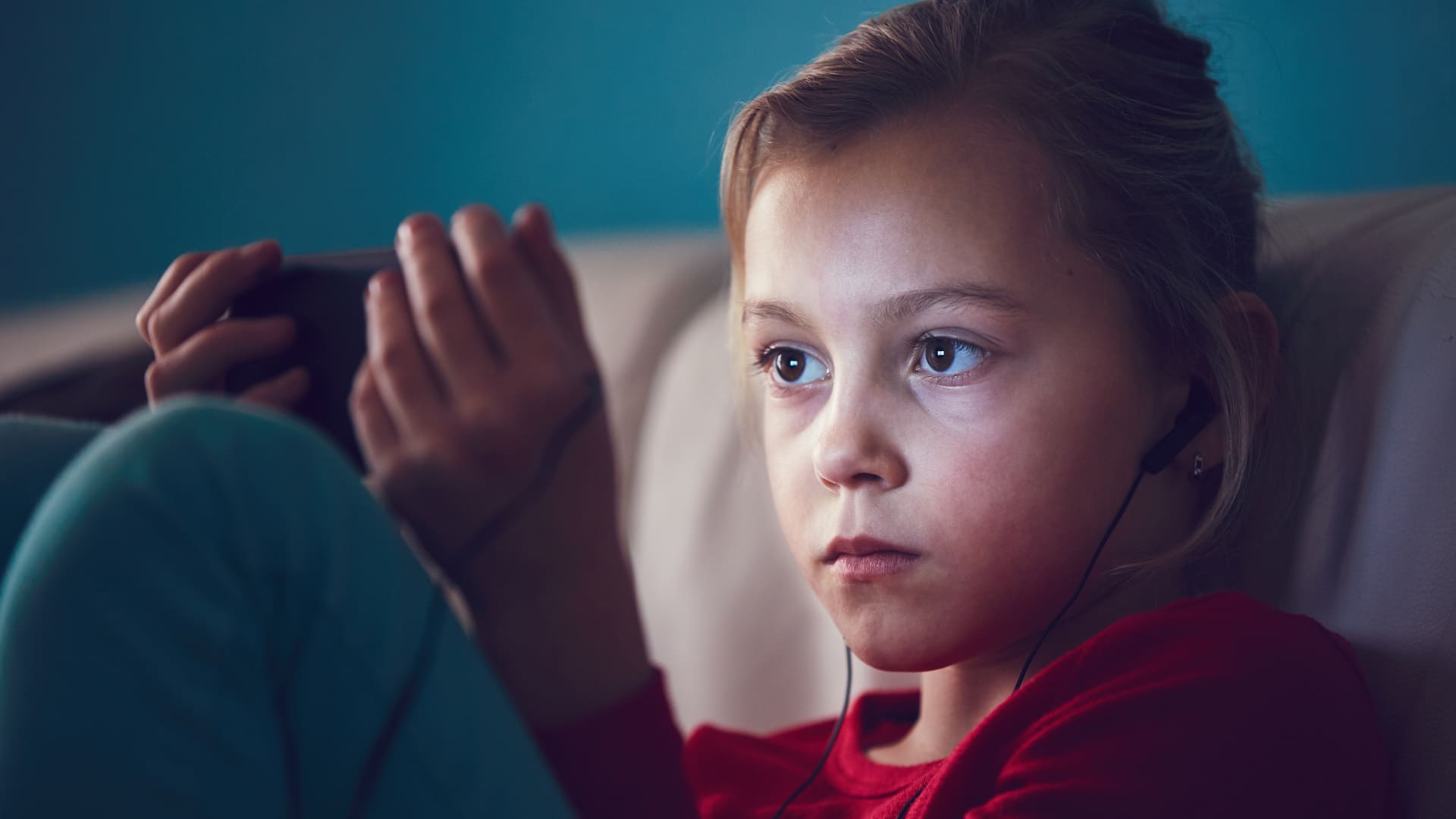Photo: Jaromir Chalabala / Getty
LONDON — The evidence linking smartphone use with mental health harms in children is growing and one grassroots organization in the U.K. is supporting parents who are refraining from giving their kids the devices.
Smartphone Free Childhood, founded by Daisy Greenwell and Clare Fernyhough in February, set up various group chats for parents locally across the U.K. and grew to over 60,000 members in a few weeks, according to its website.
Interest in the movement is driven by concerns about the normalization of children with smartphones. By the age of 12, 97% of children in the U.K. have a mobile phone, according to Ofcom, a government-approved regulator for the use of communication services in the U.K.
Meanwhile, in the U.S., 42% of children had a smartphone by the age of 10, climbing to 91% by the age of 14, according to a 2021 report by Common Sense which surveyed 1,306 young people in the U.S. between the ages of eight to 18.
Parents are giving their children smartphones in an increasingly online world for various reasons including entertainment purposes, to keep track of their location, and to stay in touch with them when they leave the home. However, studies and experts highlight this is opening up the door to social media and possible mental health harms.
SFC aims to unite parents who are not giving their children smartphones to alleviate the peer pressure and isolation they might feel.
Its success has seen it expand internationally with groups set up in the U.S., Australia, the United Arab Emirates, Brazil, Canada, South Africa, and various other countries.
Just days after the SFC campaign was launched, the U.K. government — at the time led by the Conservative Party — issued new guidance prohibiting the use of smartphones in schools and during break times.
Some places in the U.S. — like Los Angeles, and the states of Florida and Indiana — have issued bans on mobile phones in schools.
Other independent organizations are being set up globally including Austin-based Wait Until 8th, Unplugged in Canada, No Es Momento in Mexico, and the Heads Up Alliance in Australia.
However, some academics and scientists remain unconvinced that smartphones and poor mental health are linked. Psychology professor Christopher Ferguson told NBC News earlier this year that society tends to react negatively to new technologies and its potential harms from TVs to video games and more recently, AI.
Amplified mental health issues?
Young people reported worse mental health outcomes the earlier they acquired a smartphone, a Sapien Labs study published last year found.
The study used data from 27,969 18–24-year-olds which was obtained between January and April 2023 across 41 countries including North America, Europe, Latin America, Oceana, South Asia, and Africa.
Some 74% of female respondents who got their first smartphone at age six reported feeling distressed or struggling, per the study. However, this decreased to 61% for those who acquired their first smartphone at age 10, and 52% for those who were aged 15.
For male respondents, the percentage feeling distressed or struggling reduced from 42% for those who got their first smartphone at age six, to 36% for those who got their first smartphone at age 18.
Young people who acquired their first smartphone at an older age reported better mental wellbeing including fewer problems with suicidal thoughts and feelings of aggression, and reduced issues with being detached from reality.
These findings are mobilizing parents to take action, said Zach Rausch, a research scientist at New York University Stern School of Business and lead researcher for Jonathon Haidt’s number one New York Times bestseller “The Anxious Generation.”

“The mass migration into a phone-based childhood has been really harmful to young people,” Rausch told CNBC Make It in an interview.
“The research has been building and the evidence of harm has become stronger and stronger year after year,” he added. “The lid has been taken off of the box and parents see that other parents are speaking up about this so we’re seeing this wave of parents coming together.”
Rausch said it’s the combination of smartphones with social media that is particularly lethal for youngsters.
The UK Millennium Cohort Study, which follows the lives of approximately 19,000 young people born in the U.K. between 2000 and 2002, found a high correlation between social media use and depressive symptoms including low self-esteem, online harassment, and poor body image.
“When smartphones and social media really came together, it created this whole new way of interacting with each other,” Rausch said.
“So now you have social media in your pocket on the smartphone that is designed to maximize the amount of time that you spend on the phone … it’s built in a way that is addictive in nature and tries to hook you.”
In recent years, Meta, the parent company of social media platforms Instagram and Facebook, has come under fire from lawmakers and parents for exposing children and teenagers to harmful content on its platforms including various accusations of child sexual exploitation.
In turn, Meta CEO Mark Zuckerberg has called for lawmakers to issue more guidance and regulations to help tackle harmful online content. Under mounting pressure, the tech giant announced in January 2024 that it will limit the type of content that teenage users of Instagram and Facebook can see including self-harm, eating disorders, and nudity.
Some tech companies are trying to build child-friendly smartphone and social media experiences. Google launched YouTube Kids in 2015, a separate YouTube-like app with child-friendly content and parental controls.
iPhone maker Apple launched a new website recently promoting the Apple Watch for kids who are too young for smartphones. The device that would be managed by parents’ iPhones so they can keep in touch with their children.
